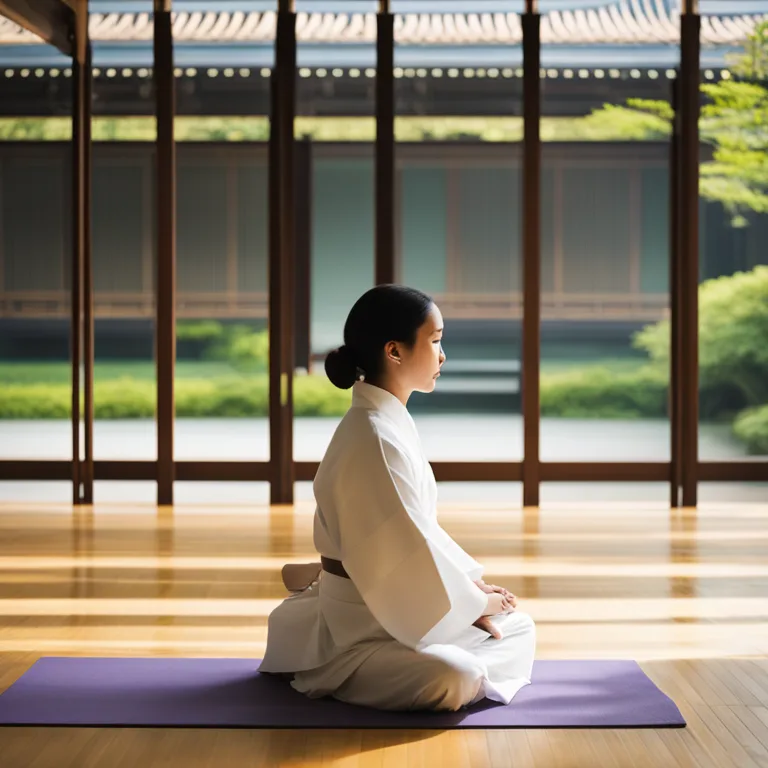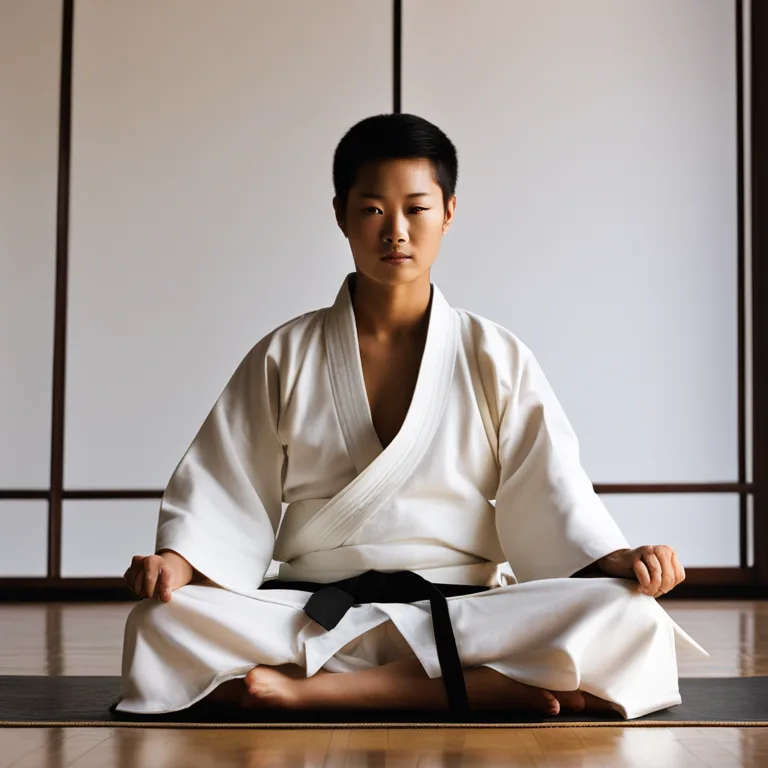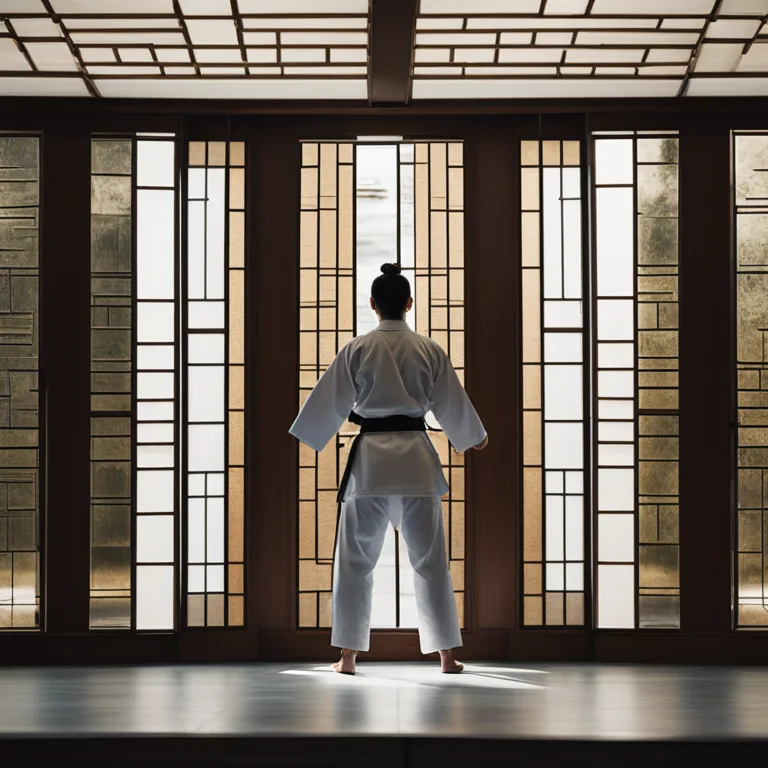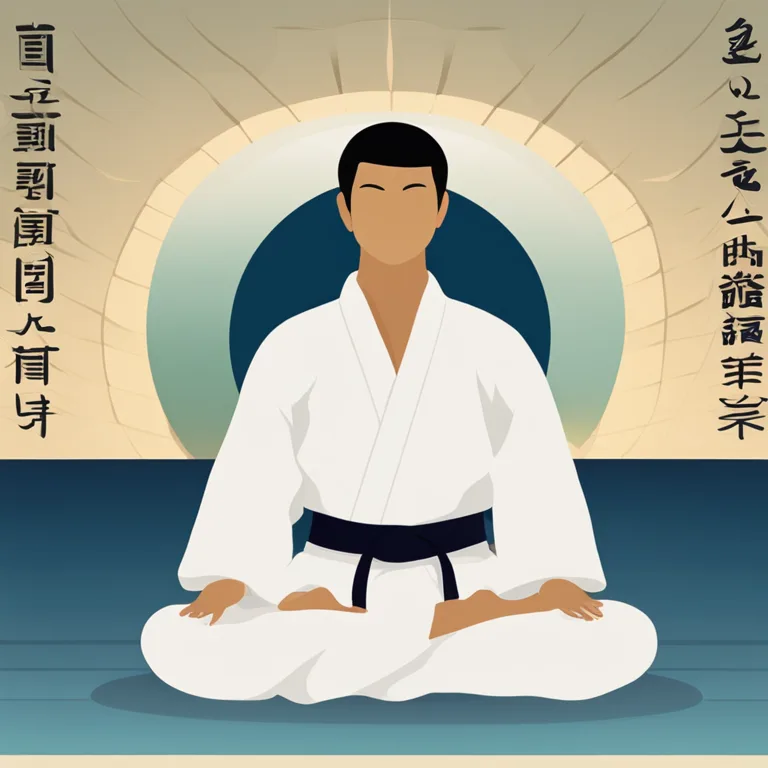
Harmony of Body & Mind: Karate Meditation Techniques
Delve into karate meditation techniques and how they promote balance between the physical and spiritual for martial artists.
article by Hina Kurosawa
Introduction to Karate Meditation
The journey of karate is one that involves much more than the physical mastery of techniques; it is a path that also emphasizes the development of the mind and spirit. Karate meditation, or "mokuso," is practiced at the beginning and end of each training session, setting the tone for focus and reflective closure. This practice has evolved to not only complement martial abilities but also enhance personal well-being. It aids in calming the mind, honing concentration, and aligning one's chi, or life energy.

Setting the Scene for Serenity
Before diving into the specifics of meditation techniques in karate, it is essential to understand the importance of the environment. A quiet, peaceful space is ideal, allowing practitioners to sit comfortably in the seiza position, with their hands gently resting on the thighs. The physical stillness achieved in this environment sets a foundation for mental tranquility, a prelude to deeper introspection and focus.

Breathing: The Core of Focus
Breath control is the cornerstone of karate meditation. Inhaling deeply through the nose and exhaling slowly through the mouth encourages a rhythm that commands the practitioner's full attention. This mindful breathing, known as "ibuki," serves to oxygenate the body and focus the mind, facilitating a deeper connection between the two. Over time, dedicated practice can result in improved lung capacity and control over one's physiological responses to stress.

Visualization Techniques
Visualization is another powerful pillar in the art of karate meditation. Practitioners are often guided to envision scenarios that require their martial prowess, imagining themselves executing movements with precision and control. This mental rehearsal not only prepares the mind for physical training but also solidifies the neural pathways associated with technique execution, contributing to muscle memory and instinctual response.

The Role of Ki in Karate
Meditation within karate also delves into the concept of "ki," the universal energy that flows through all things. Harmonizing one's ki through meditation is said to enhance bodily function, focus, and martial efficacy. Karatekas (karate practitioners) strive to center and expand their ki, fostering a sense of connectedness to the world around them and attaining a level of clarity pivotal to both life and martial practice.
Mokuso's Place in Daily Life
While mokuso is traditionally a part of karate training, its benefits are not confined to the dojo. Karate meditation techniques have real-world applications, instilling a sense of discipline, patience, and introspection that can benefit many aspects of daily life. Whether used for stress reduction, improved concentration, or mental fortitude, the principles of karate meditation hold universal appeal.
Continued Practice and Mastery
Mastery of karate meditation is not achieved overnight; it requires consistent and deliberate practice. Karatekas must dedicate themselves to the process, understanding that personal growth and spiritual development are incremental. By regularly incorporating mokuso into their routine, practitioners develop a profound sense of peace and an enhanced ability to face both internal and external challenges.
Published: 12/20/2023
Modified: 12/20/2023
More predictions
Come back here soon to learn more about yourself and your future


Pregnancy Meditation Techniques
Discover serene and effective meditation techniques tailored for expectant mothers to enhance prenatal wellbeing and connect with their unborn child.


Calming The Mind With Meditation
Discover effective meditation techniques to ease your mind and promote serenity in your daily life.


Meditative Focus Techniques Explored
Enhance your concentration through effective meditation practices designed for mental clarity and focus.